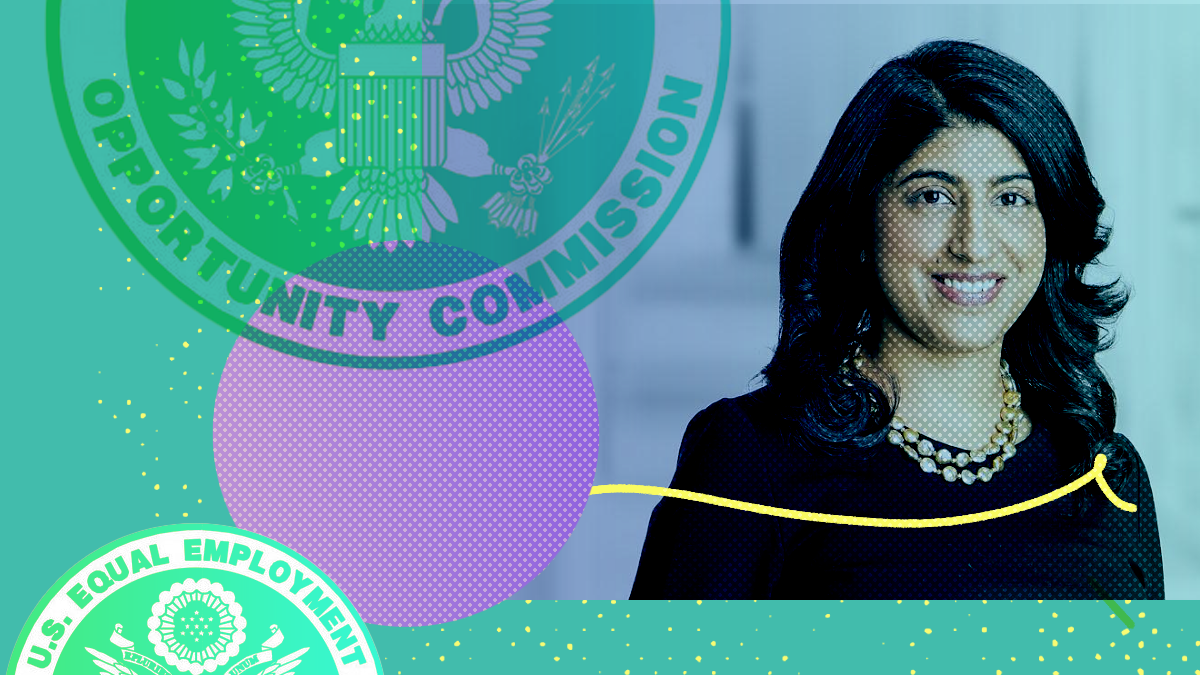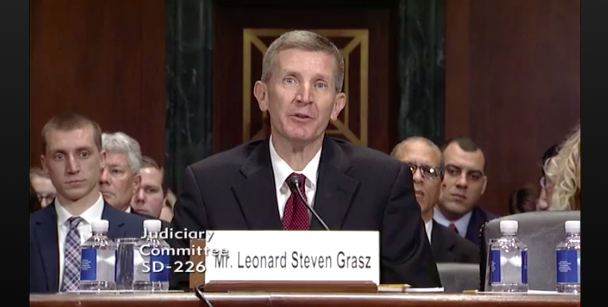Kalpana Kotagal Would Protect Workers. Why Won’t the Senate Let Her?

When I was a kid, I loved going into my mom’s office. It was the 1980s, and my mom, as far as I knew, was an office superhero.
She worked for our town’s construction official. That meant if a business owner wanted a building permit, they had to go through her. My mom was the only woman in her office, and she held her own with the contractors and building inspectors (mostly men) whom she dealt with every day.
Everyone in town knew and respected her. I couldn’t go anywhere without someone telling me to say hi to my mom. One of her co-workers even walked me home from school every single day—just to make sure I got back safe.
My mom worked at that office for years. Until a new supervisor began sexually harassing her.
It started with inappropriate comments in the office and escalated to harassing calls to our home. My mom reported him… but nothing changed.
The stress became too much, and she ended up leaving the job that she once loved.
Eventually, my mom sought help from the U.S. Equal Employment Opportunity Commission (EEOC). The EEOC is the only federal agency dedicated to protecting workers from unlawful harassment and discrimination.
Anyone looking to enforce their rights must first file a charge of discrimination with the EEOC. The EEOC can then investigate what occurred, help a worker reach a voluntary settlement, or file a lawsuit. If the agency chooses not to file, it may issue a notice of right to sue, allowing a worker to initiate their own lawsuit.
The EEOC is led by five commissioners who can decide which lawsuits are filed. Outside of lawsuits, commissioners vote on guidance documents that workers, employers, and the courts use to interpret federal workplace antidiscrimination laws. They also have the power to approve certain regulations after receiving input from the public.
When a vacancy on the commission arises, the president appoints a new commissioner, who then must be confirmed by the Senate.
Currently, there are three Republican commissioners and two Democratic commissioners. The term of Republican Commissioner Janet Dhillon expired on July 31, but she will remain on the EEOC through 2022 until a new nominee is confirmed.
President Biden nominated civil rights attorney Kalpana Kotagal to that seat back in April—but the Senate has yet to confirm her nomination.
So, what’s the hold up?
Kalpana Kotagal is exceptionally qualified to serve on the EEOC. She has spent her career helping working people enforce their rights. She is well-respected among her peers who have lauded her qualifications. But her confirmation would shift the balance of power on the commission, leading to a 3–2 Democratic majority.
So long as Kotagal remains unconfirmed, Dhillon gets to remain in her seat, enabling the Trump-appointed Republican majority to impede action on the most serious issues plaguing women in the workforce.
Case in point: The EEOC has still not issued updated workplace harassment guidance that has been pending since 2017.
For workers who are facing discrimination and sexual harassment, the EEOC is not a political game—it is a crucial avenue to maintaining their economic security. Everyone should be treated fairly, with dignity and respect, yet thousands of working people experience harassment and discrimination every year. Between 2017 and 2021, the EEOC received nearly 60,000 charges of sex-based harassment, and many more incidents go unreported.
Sexual harassment destabilizes workers and their families, often harming their mental health and financial security for life.
My mom was never able to get another job. She had to sell her home to avoid foreclosure, and then, her car—which, to her, symbolized her freedom. Eventually, she was forced to move out of state.
We need a proactive and strong EEOC to help workers like my mom, and all working people.
And we must call on the EEOC to not only enforce rights after the fact—but to prevent workplace abuses from ever happening in the first place.





